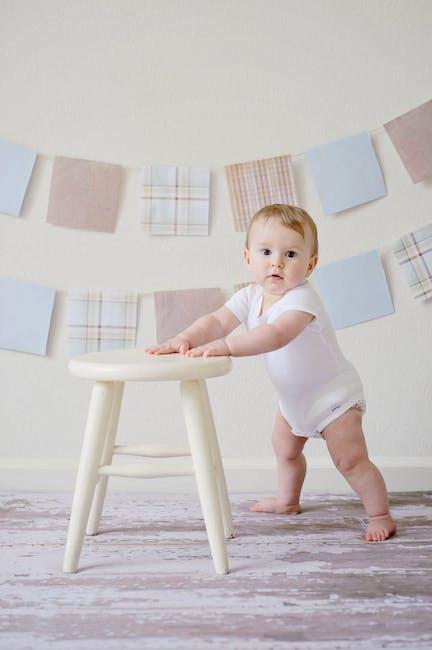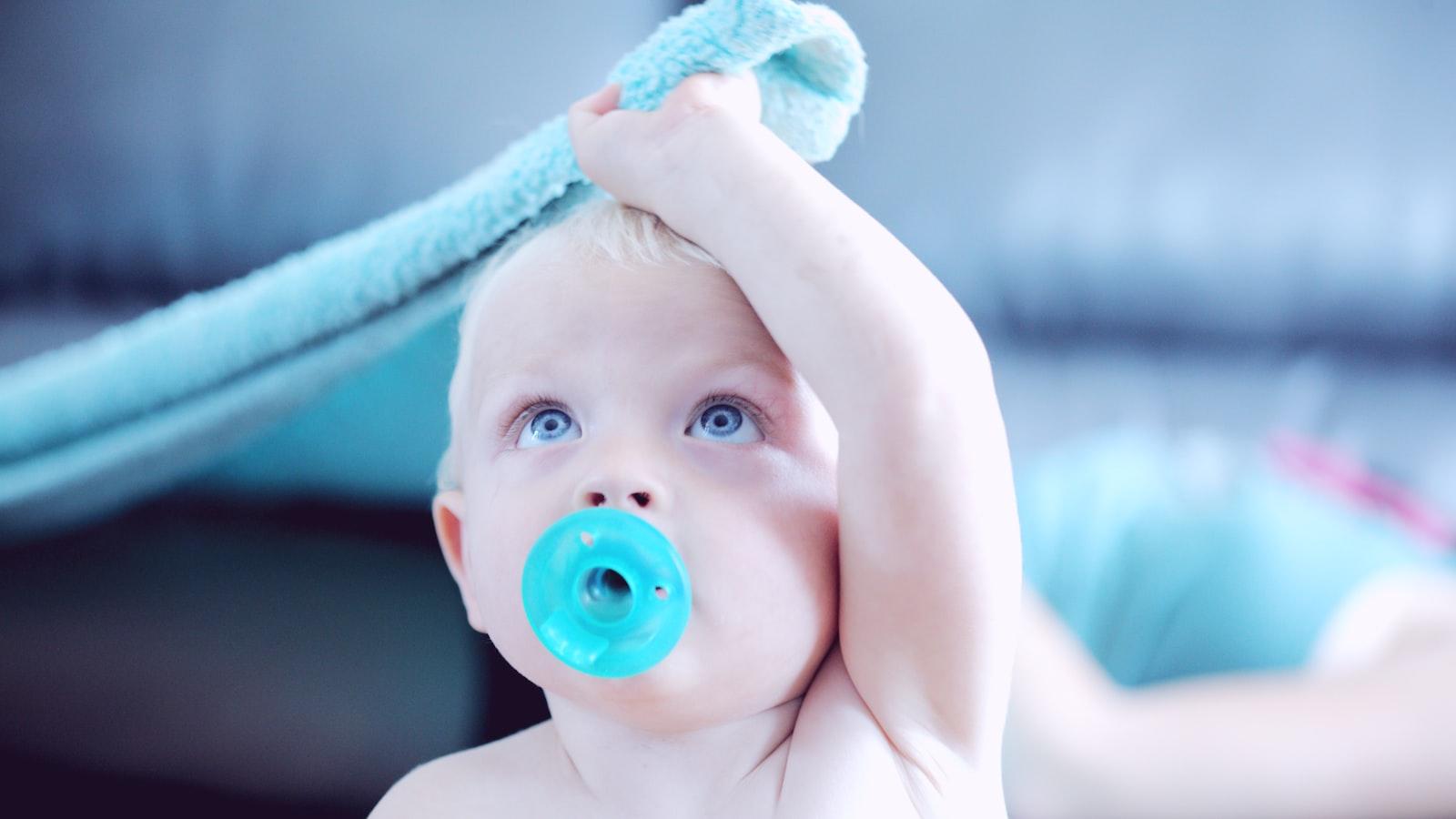If you’re a parent or caregiver of an infant, it’s important to know how to tell if your baby is overstimulated. Knowing the signs of overstimulation can help you create a safe and comfortable environment for your baby, while also helping them to become accustomed to different people, places, and activities. In this article, we’ll discuss what signs to look for when determining if a baby is overstimulated, as well as how you can help them feel calm and relaxed again.Recognizing signs of overstimulation in babies can be challenging. However, there are some common signs that you can look for. These include excessive crying, arching of the back, flailing arms and legs, and refusing to be comforted. Other signs may include irritability or fussiness, difficulty falling asleep or staying asleep, and increased sensitivity to sound or touch. If your baby is exhibiting any of these signs, it may be time to take a break from stimulation and provide them with some quiet time.
What Is Overstimulation?
Overstimulation is a condition in which an individual is exposed to an excessive amount of stimuli, resulting in an overwhelmed and unpleasant feeling. Stimuli can include loud noises, bright lights, strong scents, and other environmental factors. Overstimulation can also be caused by physical contact or too much sensory input at once. It can lead to feelings of anxiety, stress, and panic. People who are particularly sensitive to stimuli may experience overstimulation more easily than others. Other factors that may contribute to overstimulation include lack of sleep, fatigue, hunger, and dehydration. Additionally, people with certain medical conditions such as autism spectrum disorder or ADHD may be more prone to experiencing overstimulation than those without these conditions.
The effects of overstimulation vary from person to person but may include difficulty concentrating, feeling overwhelmed or anxious, increased heart rate and breathing rate, trembling or shaking hands and feet, dizziness or lightheadedness, nausea or upset stomach, sweating excessively, headaches or migraines. In extreme cases it can even lead to disorientation or loss of consciousness. Treatment for overstimulation typically involves avoiding the stimuli that triggered the reaction as well as calming techniques such as deep breathing and meditation.
Overstimulation Affect Babies
Babies are sensitive to their environment, and too much stimulation can cause them to become overwhelmed. When a baby is overstimulated, it can lead to excessive crying, fussiness, difficulty sleeping, and refusal to eat. Additionally, overstimulation can cause a baby to become easily overwhelmed and less likely to interact with the world around them. This can be a sign of sensory overload or sensory processing disorder.
The best way to prevent overstimulation in babies is by creating an environment that is both calming and stimulating. This means having soft lighting, gentle music, and limited distractions in the room where the baby spends most of their time. It is also important to limit the amount of time spent in noisy or crowded places as this can be too overwhelming for babies.
Parents should also be mindful of how they handle their baby during times of stress or excitement. Try not to hold your baby for too long or speak in an overly loud voice; instead keep things calm and quiet while interacting with your infant. Additionally, avoid introducing new toys or activities that your baby may not be ready for as this can create additional stress.
Finally, it is important for parents to pay attention to their infant’s cues in order to recognize when their child has become overstimulated. If you notice that your baby is becoming overwhelmed by their environment or activities, it is important to take a step back and provide them with a more calming environment so they can settle down and relax.
Reduce the Potential for Overstimulation in Babies
Overstimulation can be a problem for babies, as it can cause distress and make them feel overwhelmed. It is important to create an environment that is calming and conducive to learning for babies. Here are some tips to help reduce the potential for overstimulation in babies:
1. Keep noise levels low – loud noises can be very startling and overwhelming for babies. Try to keep noise levels low, especially when they are napping or playing.
2. Limit distractions – too many toys and items in a room can be distracting and overstimulating for babies. Try to limit the number of items in a room and rotate them out periodically so that it does not become overwhelming.
3. Provide soothing music – playing soothing music in the background can help reduce stimulation levels and create a calming atmosphere for babies.
4. Create a routine – establishing a consistent routine helps babies to feel secure and reduces their stress levels, which can help reduce potential overstimulation.
5. Set boundaries – setting boundaries with your baby will help them understand what is acceptable behavior and what is not, which can prevent them from becoming overstimulated or overwhelmed by their environment or other people’s actions toward them.
By following these tips, you can help reduce the potential for overstimulation in babies and create an environment that encourages learning and exploration without causing distress or overwhelm.
Learning Your Baby’s Cues
Understanding your baby’s cues is essential for providing them with the best care. It is important to pay attention to your baby’s cues as they can indicate their needs and feelings. Babies often communicate through facial expressions, vocalizations, or body movements. Recognizing these cues can help you understand how your baby is feeling and what they need.
One of the most important cues to look for is crying. Crying is a baby’s way of communicating that something is wrong. When a baby cries, it could be a sign that they are hungry, tired, or uncomfortable in some way. It is important to try to identify the cause of the crying so that you can provide comfort and meet their needs.
Facial expressions are also an important cue to look for when caring for your baby. Babies often use facial expressions to communicate their emotions and indicate if they are happy or sad, excited or scared. By carefully observing your baby’s facial expressions, you can better understand how they are feeling in any given situation.
Babies also use body movements and gestures to communicate with their caregivers. For example, babies may wave their arms when they want attention or move away from something that makes them uncomfortable. Paying attention to these subtle cues can help you provide better care for your little one and ensure their emotional wellbeing.
Learning your baby’s cues takes time and practice but it will help you respond more effectively to their needs. Pay close attention to your baby’s nonverbal communication and try to identify what it could be telling you about how they feel or what they need in any given moment. This will ensure that you are providing the best possible care for your little one!

Signs of an Overstimulated Baby
It is important for parents to recognize the signs of an overstimulated baby. Overstimulation in babies can occur when they are exposed to too much noise, light, or activity. Common signs of an overstimulated baby include irritability, fussiness, crying, and poor sleep. If a baby is overstimulated, they may also become clingy and seek more physical contact with their caregivers than usual.
In some cases, an overstimulated baby may have difficulty calming down even when cuddled or held by their caregiver. They may also become overwhelmed more easily than usual when exposed to new people or environments. Parents should pay attention to their baby’s behavior and attempt to limit any activities that could be causing overstimulation.
It can be difficult for babies to regulate their emotions during times of heightened stimulation. Therefore, it is important for parents to provide a calming environment and give plenty of affection and reassurance when necessary. Spending time outdoors in peaceful settings can also help babies relax and reduce the effects of overstimulation.
When to Seek Professional Help for an Overstimulated Baby
It can be difficult to know when it is time to seek professional help for an overstimulated baby. Signs of overstimulation in babies include irritability, fussiness, crying, and difficulty calming down. If your baby displays these behaviors frequently, it may be time to seek professional help.
The first step in helping an overstimulated baby is to identify the source of the stress. This may include loud noises, bright lights, or too many people in the same room. Once the source of stress has been identified, you can begin to address it. For instance, if your baby is sensitive to loud noises you can turn down the volume or move away from noisy areas.
It is important to create a safe and calm environment for your baby. This includes providing them with a comfortable space that is free from distractions and clutter. Additionally, avoid providing too much stimulation at once such as toys or screens. Instead, provide your baby with comforting items such as a pacifier or blanket that can help them feel secure and relaxed.
If you are unable to identify and address the source of your baby’s stress on your own then it may be time to seek professional help. A pediatrician or child psychologist may be able to provide advice on how best to manage your baby’s overstimulation and provide additional resources that may be beneficial for helping them cope with stress.
Overall, if you are struggling with an overstimulated baby it is important not to wait too long before seeking professional help. Identifying the source of their stress and providing a calm environment can go a long way in helping them cope with their feelings but if you are unable to do so then seeking professional help may be necessary for their well-being.
What Not to Do if Your Baby Is Overstimulated
When your baby is overstimulated, it can be difficult to know how to respond. Babies typically become overwhelmed when exposed to too much noise, light, or activity. If your baby is overstimulated, it’s important to take a step back and recognize the signs so you can help them relax and feel safe. Here are some things to avoid doing when your baby is overstimulated.
First, don’t ignore their distress signals. If your baby is rocking back and forth, covering their face with their hands or arms, or arching their back in discomfort, they’re likely feeling overwhelmed and need your attention. Responding promptly will help you get ahead of the situation before it escalates further.
Second, avoid trying to distract them with toys or food. When babies are overstimulated, they may become overwhelmed and unable to focus on any external stimuli. Instead of trying to distract them with toys or food, provide them with a calm environment where they can relax in a safe place.
Thirdly, don’t force them into situations that make them uncomfortable. Babies have an innate sense of self-preservation so if they don’t feel comfortable in a certain situation or environment then try not to push them into it against their wishes.
Finally, don’t expect too much from them in terms of development milestones when they are feeling overwhelmed. Developmental milestones are important but so is taking care of your child’s emotional needs first and foremost. When babies are overstimulated they may not be able to focus on learning new skills or meeting developmental milestones so it is best not to expect too much from them at this time.
Overall, being aware of the signs of overstimulation in babies will help you respond appropriately when they become overwhelmed by their environment. Avoiding activities that make them uncomfortable and providing a safe space for relaxation will allow them time and space to unwind until they are ready for more stimulation again.

Conclusion
Knowing how to tell if baby is overstimulated is important for a parent. There are physical signs such as a baby becoming red in the face, tightening up, and crying. There are also emotional signs such as when a baby becomes more fussy and irritable. Being able to recognize these signs quickly can help parents prevent their baby from becoming overwhelmed and overstimulated.
Once parents recognize the signs of overstimulation, they can take steps to help their baby calm down by reducing stimulation in their environment, providing comfort items like a pacifier or blanket, and speaking softly to them. With practice and patience, parents will be able to know exactly how to tell if their baby is overstimulated.
In conclusion, it’s important for parents to understand the signs of overstimulation in their babies so they can take steps to prevent it from happening. With practice and patience, parents will be able to recognize these signs quickly and take the necessary steps to calm their babies down.




